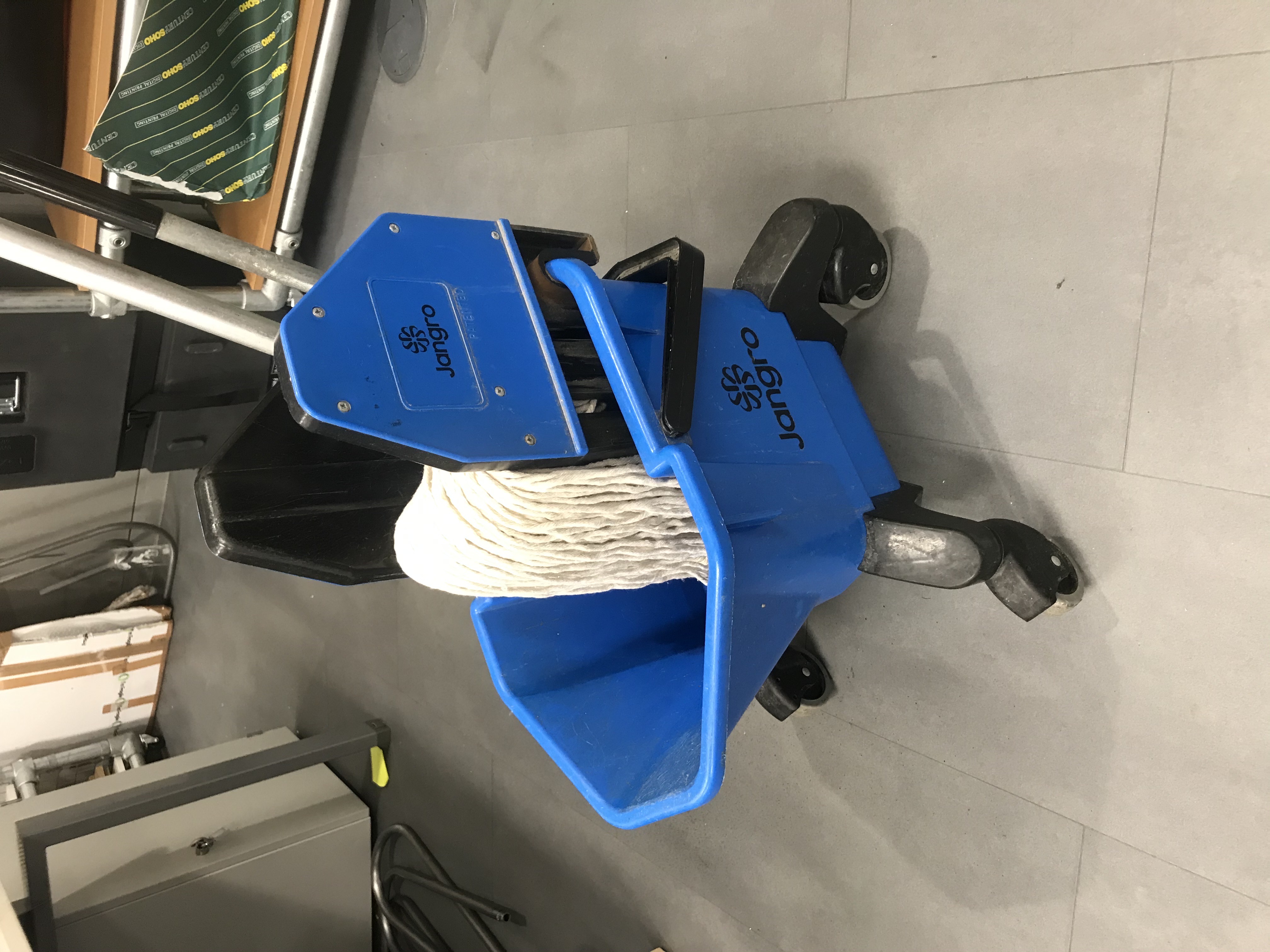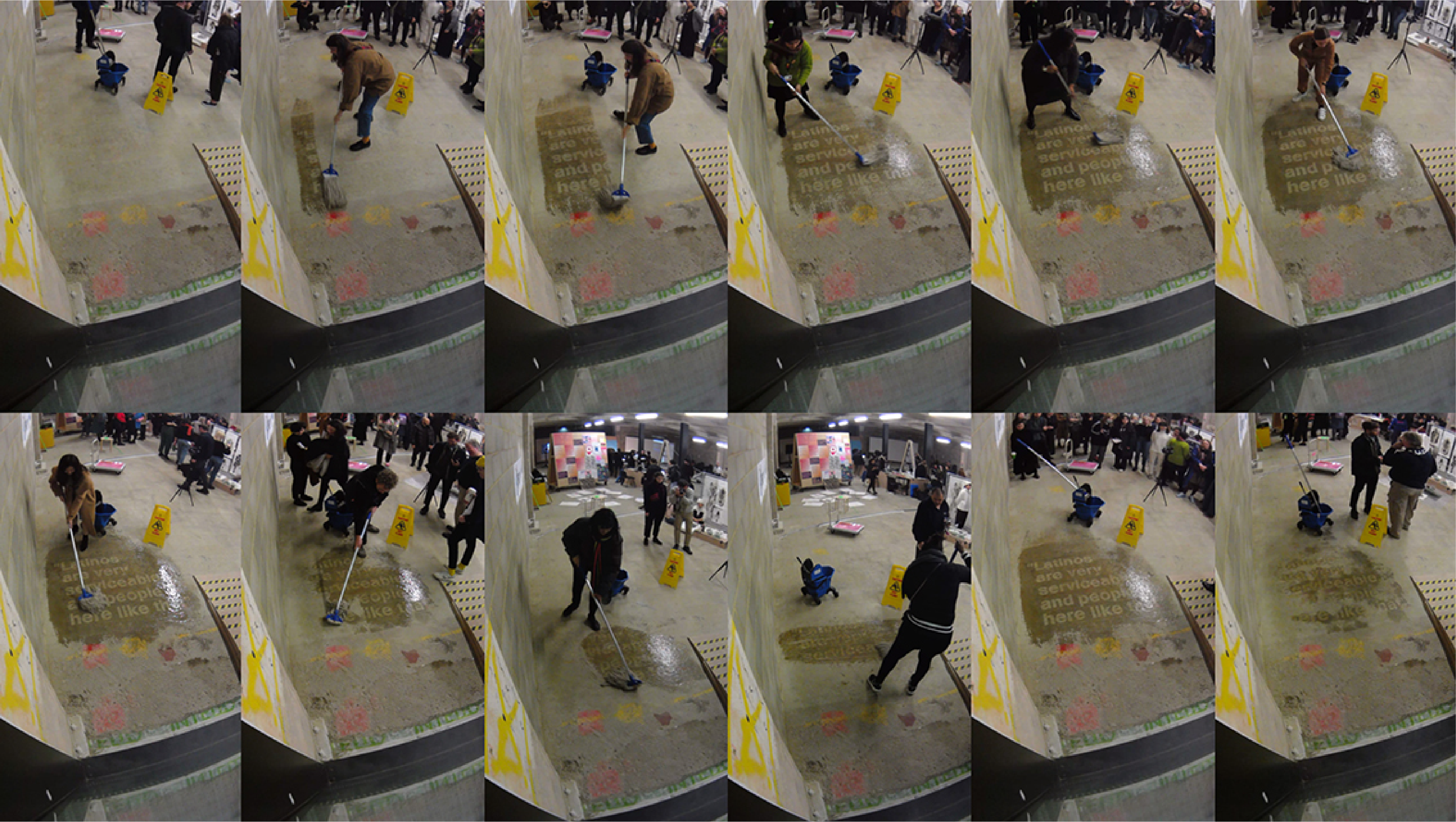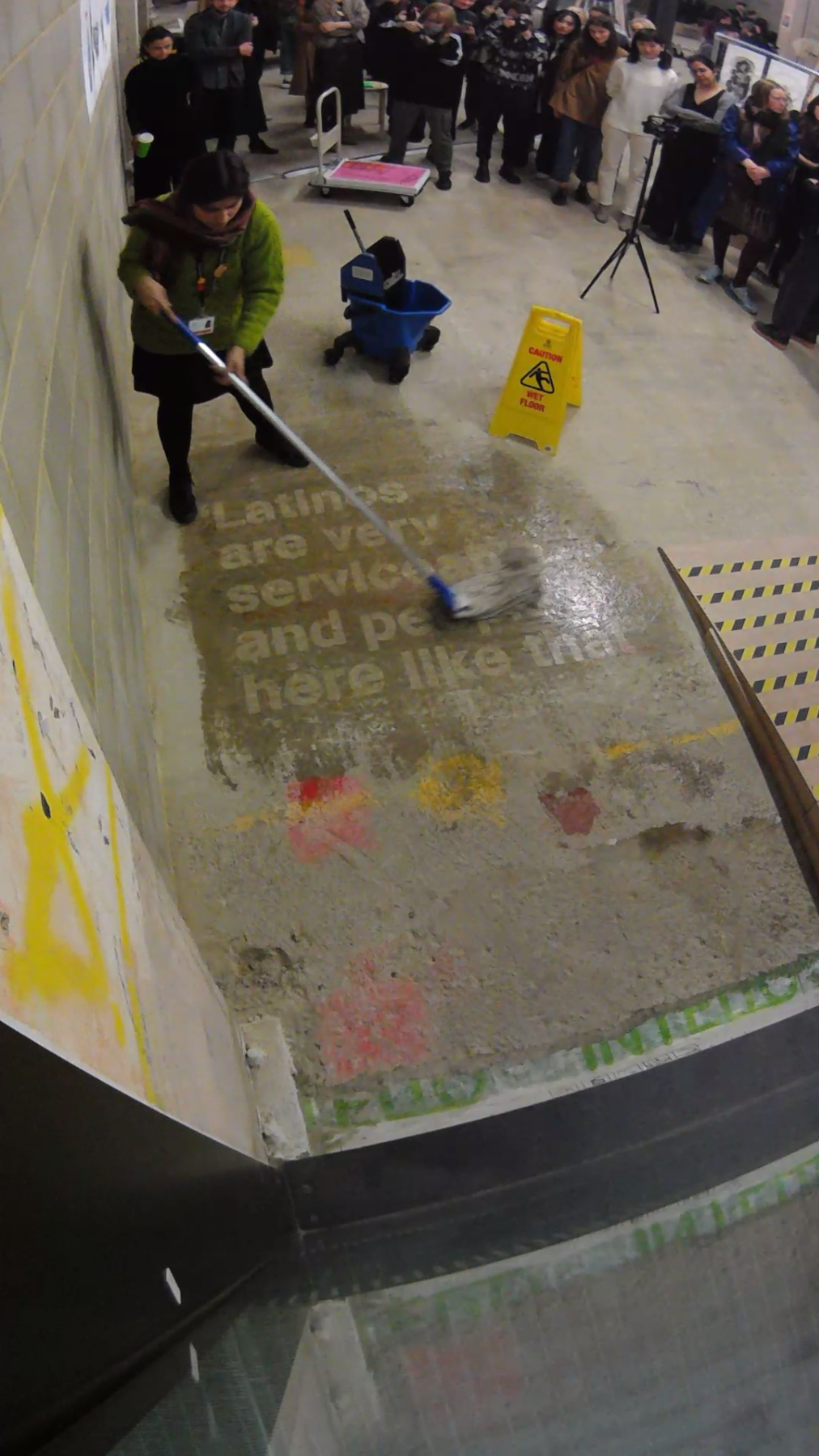Latinos Are Very Serviceable and People Here Like That
To give a bit of context: My name is José García Oliva and I was born in Caracas, Venezuela. When I came to the Royal College of Art, I realised that the first contact I had with people from South America in London were the cleaners working at the College: Julian, Jorge and Diego from Colombia, and Javier from Bolivia.
The first thing I thought was, why are they all South American? Isn’t this just another portrait of post-colonialism? South Americans cleaning, Africans guarding, Europeans teaching. I started talking to one of them for hours about types of South American food dishes (mainly arguing whether arepas are Colombian or Venezuelan), gossiping about people passing by in the halls, migration policies, EU settlement, Brexit, and so on. Between those conversations, I asked him: Why do you think you are all from South America? He said: “Latinos are very serviceable, and people here like that.” Since I heard that answer, I have tasted the bitterness of colonialism’s ashes, still warm, in my mouth. “Latinos are proud to be working, even in a hole.” The problem is that a hole will allow them to bury you, and after the hole is covered up, everyone can step on you.
In another conversation with Jorge he said, “Latinos bow their heads a lot, and when people look at us like that, they begin to abuse us.” It’s a side effect of long-term feelings of inferiority, imposed on us by the ones who are and have been served. “The past is never dead; it’s not even past,” as William Faulkner once said. Unconsciously, Latinos are still reliving their first interaction with the colonisers over and over again: On our part – one of astonishment, a culture shock that seems to mirror our first glimpse of the conquistadors, and for the colonisers – an errant mistrust in our capabilities. The re-enactment of these absurd theatricalities, and the pernicious violence they engender, still persist and have even come to seem “natural” —thereby obscuring the real imposed hierarchy of colonised and coloniser.
“The lack of individuality. [This is] the first and most serious mutilation suffered by man when they become a wage earner”
1
Octavio Paz said. “Latinos are very serviceable”: even if it is an honourable fact, the socio-economic and political context builds a camouflaged label that intensifies their invisibility, making them more vulnerable to manipulation. As one of the cleaners said to me, “we are willing to do everything.” This readiness sadly opens up a wound for the vultures to gorge themselves upon. One of the many consequences is stopping them from achieving their life goals by consuming their hours with an overload of work. Many of them would like to learn English, but how are you supposed to study after more than 10 hours of cleaning?  And then, how can you find another job if you cannot speak the English required? Suddenly, it becomes a vicious cycle. During a five minute break, Diego told me, “I feel trapped in time, nothing happens, I’m always cleaning the same.” Like Sisyphus’s punishment — an endless dissolution of their liberty, time, energy and motivation.
And then, how can you find another job if you cannot speak the English required? Suddenly, it becomes a vicious cycle. During a five minute break, Diego told me, “I feel trapped in time, nothing happens, I’m always cleaning the same.” Like Sisyphus’s punishment — an endless dissolution of their liberty, time, energy and motivation.
Some people may say, “why did they come here in the first place if they do not speak the language?” This assertion is completely illogical. It is like asking someone, “why are you going to the doctor if we are all eventually going to die?” Others may say that the root of the problem is that they are not trying to learn English and become involved in the community. But isn’t this like tying them up, throwing them into a river, and then blaming them for not swimming properly? They may barely survive, but we, as individuals, are we helping them to swim? In other words, who cares who is cleaning? Do you know the name of the person who cleans your studio every morning? The cleaners have never been introduced to us, and we have never been introduced to them, even though they are more physically present in college than many of our tutors. Ironically, we criticise “invisible” labour within our classrooms, but make visible people invisible in the institution more broadly.

José García Oliva, 'People Here Like That', 2020, documentation of the performance.
Invisibility, what a relevant word for Americans — sorry, South Americans. Even though we are Americans, Latinos seem to live on rented land. These are details that create a certain instability and doubtful identity, but also for a whole culture. When developed countries are nationalist they seem to have patriotism; yet when developing countries are nationalist, they seem to have terrorism. We have become used to asking to have a voice. It was right when Eduardo Galeano said, “we have maintained a silence closely resembling stupidity” 2 .
People Here Like That is a participative performance for the WIP at the Royal College of Art in 2020 3 . The location of the exhibition is relevant since it took place outside the RCA, in the co-working site of White City Place, London. 15 out of 17 cleaners at the RCA are South American. It was crucial for the content of the project to highlight this issue in a context that mirrors the patterns of their own labour; but more importantly, to bring an awareness to the privileged framework of the staff and student body about our individual inter-relationships with these people:
Who washes your window to allow you to see outside?
Who polishes your desk so that you can work?
Who varnishes the floor for your catwalk?
Who tidies the classroom for you to attend, where you then speak about “invisible” labour?
Who mops the floor to clean up your hastily spilt flat white?
Who dusts for you so you can get lost in the library?
Who wipes the iMac screens for you to navigate the internet?
Who empties the bins for you to not drown in the sea of your own unthinkingly printed paper?
Who cleans the kitchen for you to eat your takeaway?
Who vacuums the floor to improve your air quality?
Who disinfects the handles for you amid COVID-19?
Who washes the toilets for you to defecate?
Who refills the toilet paper for you to wipe your ass?
Who is unknown?
Who do you not see, ever, never look at?
Whose names do you not know?
Knowing these peoples’names and gratefully acknowledging the importance of their work for the well-being of our community are the first stepping stones towards inclusiveness. “Don’t forget in doing something for others that you have what you have because of others. Don’t forget that,” Martin Luther King said one day.
To end, I would like to clarify that my intention is not to generalise a whole continent. Whenever I reference South America as a whole, it is only to unify the historical similarities of colonialism. I would also especially like to thank Jorge (known as “the lawyer of the poorest” in the London Latin American community) for his history lessons about Colombian migration; Javier for his lesson about positivism, encouragement, and more importantly his spectacular sweet-corn arepas recipe; Diego for his humour; and Julian for being a friend.

José García Oliva, 'People Here Like That', 2020, exhibition view (public participation).
